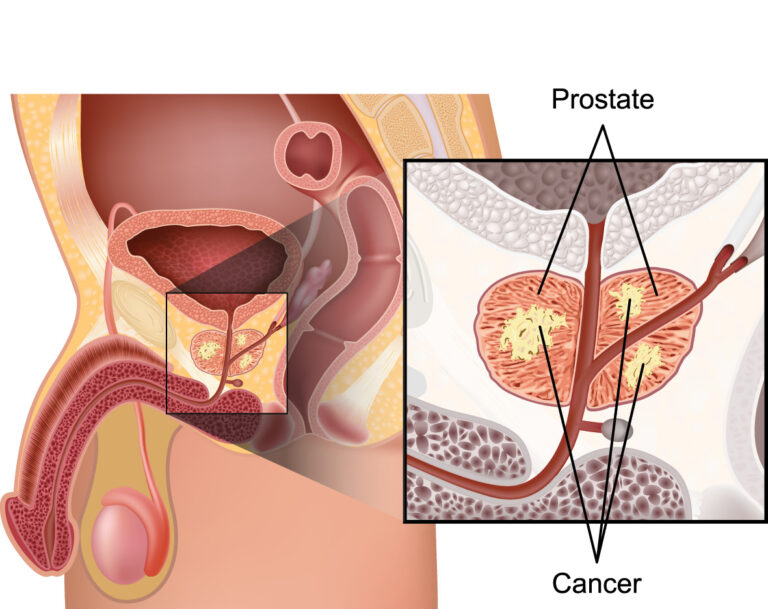Inguinal Hernia’s Impact on Erectile Dysfunction

Did you know that about 27% of adult males will get an inguinal hernia at some point? This is according to the National Institute of Diabetes and Digestive and Kidney Diseases. This fact makes us wonder about the connection between inguinal hernias and erectile dysfunction. Hernias can cause worries about sexual function, affecting many men.
Studies show that surgery for hernias can help with both physical pain and sexual performance. Even though about 9% of men might feel pain during sex after surgery, many see better sexual health after hernia treatment. It’s key to understand how inguinal hernia and erectile dysfunction are linked. This knowledge helps men get back their sexual health.
Table of Contents
Understanding Inguinal Hernias
Inguinal hernias are common, especially in men. They happen when tissue bulges through a weak spot in the abdominal muscles. This creates a noticeable lump in the groin area. It’s important to know about inguinal hernias to understand their health implications, including sexual issues.
What is an Inguinal Hernia?
An inguinal hernia is when tissue, like part of the intestines, pushes through a weak spot in the abdominal wall. This usually happens in the groin area. Symptoms can include swelling, discomfort, or pain, especially when lifting heavy things or being active.
Types of Inguinal Hernias
There are two main types of inguinal hernias:
- Indirect Inguinal Hernia: This type happens when tissue bulges through the inguinal canal due to a birth defect. It’s common in young males.
- Direct Inguinal Hernia: This type occurs when the abdominal muscles weaken. It’s more common in older adults and linked to long-term physical strain.
Causes of Inguinal Hernias
Many things can cause inguinal hernias, affecting people differently. Key factors include:
- Heavy lifting or straining during physical activities
- Being overweight, which puts more pressure on the abdomen
- Birth defects in the abdominal wall, making it more likely
- Chronic coughing or sneezing, which also increases pressure
- Getting older, which can weaken muscles
Knowing what causes hernias helps us see who might get them. It shows why it’s key to catch them early to avoid bigger problems.
| Type of Hernia | Description | Common Age Group |
|---|---|---|
| Indirect Inguinal Hernia | Protrusion through the inguinal canal due to congenital factors | Common in infants and young males |
| Direct Inguinal Hernia | Protrusion through weakened abdominal muscles | More prevalent in older adults |
Can Inguinal Hernia Cause Erectile Dysfunction?
Inguinal hernias and erectile dysfunction have a complex relationship. While there’s no direct link, complications from hernias or surgery can harm sexual health. Physical and psychological factors play a role in this situation.
Connection Between Inguinal Hernia and Erectile Dysfunction
Research shows that can inguinal hernia cause erectile dysfunction is a concern for some. Surgery often improves sexual function for many. But, some men experience temporary ED due to pain or discomfort after surgery.
This shows how complex the relationship between hernias and erectile health is.
Medical Perspectives on the Relationship
Experts say inguinal hernias are a major cause of erectile dysfunction. A study found that while some see better sexual function after surgery, others face nerve damage or scar tissue. This can lead to new ED symptoms.
Surgery for recurrent hernias has higher risks, which can make sexual health worse.
Factors Influencing Sexual Health
Several erectile dysfunction causes are important here. Being inactive, common in those with hernias, is a big ED risk. Stress, anxiety, and depression linked to hernias also hurt sexual performance.
Changing lifestyle and getting psychological support is key for those at risk of ED after hernia surgery.
Diagnosing an Inguinal Hernia
Spotting an inguinal hernia means looking for signs and symptoms. It also means doing specific tests. Finding it early is key to avoid bigger problems. This ensures you get the right treatment on time.
Signs and Symptoms of Inguinal Hernias
Common signs include:
- Swelling in the groin or scrotum
- Discomfort or pain, especially when lifting or straining
- A heavy or dragging sensation in the bulge
- Visible bulge in the groin area
These symptoms can change based on the hernia’s size and other factors. Knowing these signs helps get a diagnosis faster and improves treatment results.
Diagnostic Tests for Inguinal Hernia
Doctors use several ways to diagnose hernias, including:
- Physical examination to check for bulges and tenderness
- Ultrasound imaging to see the hernia and nearby areas
- CT scan for detailed images if needed
Each test gives important info. This helps doctors plan the best treatment.
Seeking Professional Help
If symptoms don’t go away or get worse, see a doctor. Getting help early can stop serious problems like strangulation. This is when blood supply to tissue is cut off. Quick action is vital for your health and to fix any related issues, like sexual problems.
Common Symptoms of Erectile Dysfunction
Erectile dysfunction shows up in many ways, affecting a man’s sex life. Knowing these signs is key to spotting health problems, like inguinal hernias. Spotting these symptoms early helps get the right medical help fast.
Physical Signs
Physical signs of erectile dysfunction include:
- Difficulty achieving an erection
- Inability to maintain an erection during sexual activity
- Reduced sexual desire
- Changes in firmness of erections
About 25 percent of adult males face erectile dysfunction symptoms. This number goes up for those over 65. Inguinal hernias can make these symptoms worse, so it’s important to see the link.
Psychological Factors
Psychological issues often go hand in hand with physical symptoms. Emotional concerns like:
- Anxiety about sex
- Depression
- Stress from personal or health issues
can make erectile dysfunction worse. Men dealing with both physical and mental health issues need a treatment plan that covers everything.
When to Seek Medical Advice
Men with ongoing erectile dysfunction symptoms should talk to a doctor. It’s crucial if symptoms last more than a few weeks or come with other health problems. Early action can lead to better treatments, as erectile dysfunction can signal bigger health issues like heart disease or diabetes. Looking at both physical and mental health helps find the best way to get better.
Treatment Options for Inguinal Hernias
Dealing with inguinal hernias often means surgery is needed. There are many ways to fix this, from old-school methods to new, less invasive ones. Knowing about these options helps patients choose the best treatment for their hernia.
Surgical Procedures
Surgery is the top choice for fixing inguinal hernias. There are a few main ways to do it:
- Open hernia repair: This method uses a big cut to get to the hernia. It lets doctors fix the damaged area directly.
- Laparoscopic hernia repair: This uses small cuts and special tools. It’s quicker to heal from and leaves less scar.
Studies show that some people feel better after surgery, especially with sex. Only a few experience pain after surgery. Taking out nerves during surgery can also help with sexual pain.
Non-Surgical Alternatives
If you don’t want surgery, there are other ways to help. You can:
- Change your lifestyle to reduce strain on your belly.
- Use trusses or supports to help with symptoms temporarily.
While these options might help for a little while, surgery is key for lasting relief.
Post-Operative Care
After surgery, taking care of yourself is important. It usually takes a few weeks for the pain to go away. Things to think about include:
- Going to follow-up appointments to check on your healing.
- Using pain management to feel better.
- Waiting a bit before starting to be active again, especially with sex.
It’s also important to watch out for any issues that might affect your sex life after surgery. Even though it’s rare, it’s good to talk to your doctor about any problems you have.
| Aspect | Open Hernia Repair | Laparoscopic Hernia Repair |
|---|---|---|
| Incision Size | Large | Small |
| Recovery Time | Several weeks | Shorter recovery |
| Risks | Higher chance of complications | Minimal risks, but possible nerve removal |
| Pain Post-Surgery | More common | Less common (2% reports) |
Addressing Erectile Dysfunction
Erectile dysfunction is a common issue that may arise from various causes, including pre-existing conditions like inguinal hernia. Addressing this condition often starts with lifestyle changes. These changes can significantly enhance overall health and sexual function.
Lifestyle Changes and Their Impact
Making proactive adjustments to daily habits plays a critical role in managing erectile dysfunction. Key lifestyle changes include:
- Improving diet by incorporating fruits, vegetables, and whole grains.
- Increasing physical activity to enhance cardiovascular health.
- Avoiding tobacco and reducing alcohol consumption.
These changes can alleviate some of the erectile dysfunction causes related to physical health. They can improve sexual performance and overall well-being.
Medications for Erectile Dysfunction
A variety of medications are available for effective erectile dysfunction treatment. Common prescriptions in the United States include:
| Medication | Active Ingredient | Usage |
|---|---|---|
| Viagra | Sildenafil | Used prior to sexual activity to enhance blood flow. |
| Cialis | Tadalafil | Offers prolonged effects, usable daily in lower doses. |
| Levitra | Vardenafil | Effective for a duration similar to Viagra. |
| Cenforce 200mg | Sildenafil | Generic alternative to Viagra. |
| Vilitra 60mg | Vardenafil | Equivalent to Levitra but in a higher dosage. |
| Vidalista 20mg | Tadalafil | Another affordable option for ED treatment. |
Consultation with a healthcare provider is essential. They can determine the appropriate medication based on individual medical history and needs.
Counseling and Therapy Options
Mental health considerations are crucial in managing erectile dysfunction. Psychological therapy can help address emotional factors that contribute to the condition. This is especially true when related to erectile dysfunction causes such as anxiety or depression. Options include:
- Individual counseling to work through personal issues and stressors.
- Couples therapy to improve communication and intimacy.
- Support groups where individuals can share experiences and coping strategies.
Engaging in therapeutic options can promote a healthier mindset towards sexual function. This can enhance the effectiveness of physical treatments.
Natural Products to Support Recovery
Natural products are key for better health and sex life, especially after hernia surgery and erectile issues. Herbs, vitamins, and other products can help heal and boost sex life.
Herbal Supplements for Inguinal Hernias
Herbal remedies can help with recovery. Some good ones are:
- Ginger Root: It fights inflammation, aids digestion, and boosts health.
- Cinnamon: This spice improves blood flow, helping sex life.
- Lavender Oil: It calms, easing anxiety and helping with erectile issues.
Vitamins and Nutritional Support
Eating well is vital for healing from hernias and improving sex life. Important nutrients are:
- Vitamin C: It heals and strengthens the immune system.
- Vitamin E: It keeps blood flowing and boosts sex health.
- Zinc: It’s key for making testosterone, affecting sex health.
Over-the-Counter Products for ED
Men with erectile dysfunction often try natural remedies. Some popular ones are:
- Herbal Extracts: Ginseng and maca root may increase libido.
- Essential Oils: Used right, they can improve sex life and mood.
- Supplements: Mixes of herbs and nutrients offer overall benefits.
Always talk to a doctor before using these natural products. A personalized plan ensures safety and effectiveness in healing from hernias and erectile dysfunction.
Herbal Remedies for Inguinal Hernias
While surgery is often the main treatment for inguinal hernias, looking into other options can help. Herbal remedies might ease symptoms and boost health. Ayurvedic treatment aims to balance the body, using herbs to aid in recovery and reduce pain.
Ayurvedic Approaches to Treatment
Ayurvedic medicine sees health as a mix of mind, body, and spirit. It uses herbs like Triphala and Ginger to strengthen areas affected by hernias. These herbal remedies can help manage symptoms and improve overall health. Using these treatments with doctor advice can help the healing process.
Chinese Medicine Perspectives
Chinese medicine uses acupuncture and special diets to treat hernias. It believes in fixing energy flow in the body to ease pain. It also suggests foods that boost energy and support the body.
Incorporating Food as Medicine
Using food to heal is a key part of Ayurvedic and Chinese medicine. Eating foods full of fiber, vitamins, and antioxidants is crucial. These foods strengthen the immune system and aid digestion, important for hernia recovery. A healthy diet greatly improves health and well-being.
For more info on sexual health and remedies, visit this resource.
The Role of Diet in Recovery
Diet is key for those recovering from hernia repair surgery. A good diet for hernia recovery includes foods that help heal and strengthen the belly. The right foods are essential for getting strong again and feeling better overall.
Foods that Strengthen Abdominal Muscles
Some foods can help build belly strength. Here are a few:
- Lean proteins like chicken, turkey, and fish help muscles fix themselves.
- Leafy greens give important vitamins and minerals for health.
- Legumes, such as beans and lentils, are full of fiber and protein.
- Whole grains like quinoa and brown rice keep energy up.
Nutritional Guidelines for Hernia Recovery
Good nutrition is important for recovery. Patients should:
- Stay away from heavy or fried foods to avoid discomfort.
- Drink less acidic foods and caffeinated drinks to avoid irritation.
- Eat fewer sugary snacks and processed foods to keep a healthy weight.
- Drink plenty of water to help the body work right.
Foods That Enhance Sexual Health
A healthy diet helps with physical recovery and boosts sexual health. Here are some foods for sexual health that can help:
- Fruits like berries and watermelon help blood flow.
- Foods with healthy fats, like avocados and nuts, balance hormones.
- Dark chocolate has flavonoids that may improve circulation.
- Spices like ginger and garlic can help blood flow and heart health.
Eating the right foods and keeping a balanced diet helps with hernia recovery and boosts sexual health too.
Mind-Body Connection
The link between our mental health and physical health is key in managing inguinal hernias and erectile dysfunction (ED). Knowing how stress affects these conditions is crucial for treatment and recovery. It’s important to address mental health for those dealing with these issues.
Impact of Stress on Inguinal Hernias and ED
Stress can make symptoms of inguinal hernias and ED worse. Anxiety and emotional stress can lead to more complications. This affects not just physical health but also our mental ability to handle pain and discomfort.
Studies show a link between stress levels and ED. Managing stress can help. Using relaxation practices can improve overall well-being and sexual health.
Relaxation Techniques to Alleviate Symptoms
Adding relaxation techniques to our daily lives can lower stress. This can improve outcomes for hernia recovery and ED. Practices like:
- Yoga
- Meditation
- Deep breathing exercises
- Progressive muscle relaxation
These methods offer a holistic health approach. They support both physical recovery and mental calm. Using these techniques can improve blood flow and hormonal balance, key for sexual function.
Importance of Mental Health Support
It’s crucial to recognize the need for mental health support for those with inguinal hernias and ED. Many patients face psychological and emotional distress. Creating supportive environments and encouraging open talks about mental health is vital.
Combining psychological support with physical treatments can improve recovery. This helps individuals manage anxiety and depression related to these health issues.
Alternative Therapies
Looking into alternative therapies can help those dealing with inguinal hernias and erectile dysfunction (ED). These methods aim to ease pain and boost overall health. They might also help in recovery and improve sexual function.
Acupuncture for Inguinal Hernias
Acupuncture is becoming more popular as a treatment for pain, including from inguinal hernias. It targets specific body points to reduce pain and stress. This can be good for ED too.
Research shows acupuncture might improve blood flow and nerve function. These are key for managing hernias and ED symptoms.
Chiropractic Adjustments
Chiropractic care focuses on aligning the spine and improving body mechanics. It can relieve nerve pressure and enhance physical function. Regular adjustments may help manage hernia pain and improve sexual performance.
Those looking for alternative therapies for hernia and ED might find chiropractic care helpful. It’s a valuable part of recovery.
Massage Therapy for Pain Relief
Massage therapy helps reduce pain and stress. It relaxes the body and releases tension in the pelvic area. This is especially good for those with hernias and ED.
Regular massages can improve blood flow and lower pain. This leads to better sexual health. For more on erectile health, check out this useful resource.
| Therapy Type | Benefits | Considerations |
|---|---|---|
| Acupuncture | Pain relief, improved blood flow | Requires a licensed practitioner |
| Chiropractic Adjustments | Spinal alignment, reduced nerve pressure | Consultation needed for treatment plans |
| Massage Therapy | Stress relief, increased circulation | Choose a certified therapist |
Long-Term Management Strategies
Managing an inguinal hernia is more than just surgery. It involves long-term strategies and self-care. These steps help keep you physically and sexually healthy.
Preventive Measures for Inguinal Hernias
Preventive steps are key in managing hernias. They include:
- Maintaining a healthy weight: Being overweight can raise the risk of hernias.
- Practicing safe lifting techniques: Proper lifting can reduce strain on your belly.
- Engaging in regular exercise: Exercise strengthens your core, supporting your belly.
Maintaining Sexual Health Post-Treatment
After treatment, focus on preventing ED. Talking openly with doctors about sexual health is crucial. Many men see their sexual function improve after surgery. Yet, it’s important to keep an eye on any ongoing issues.
Regular Monitoring of Symptoms
Since many men face sexual problems after hernia surgery, regular check-ups are a must. Watching for new symptoms helps catch problems early. This shows the value of proactive healthcare in managing hernias long-term.
When to Consult a Specialist
Knowing when to see a doctor is key for dealing with hernias and erectile dysfunction (ED). If symptoms get worse or cause a lot of pain, you might need urgent care. Getting help from a specialist can really improve your health.
Signs That Indicate Urgent Care
There are clear signs that mean you should see a doctor right away. These include:
- Severe pain in the groin area
- Sudden or increased discomfort during physical activities
- Visible swelling or noticeable bulge that expands
- Symptoms of nausea or vomiting accompanying pain
- Difficulties in achieving or maintaining an erection
Don’t ignore these symptoms. They could mean serious problems with hernias or sexual health. Seeing a doctor early can stop bigger problems, making it crucial to get help.
Finding the Right Healthcare Provider
When looking for a specialist, find someone with a lot of experience in hernias and sexual health. Look for places that do a lot of hernia surgeries, like Boston Hernia. They do over 1,000 surgeries a year. This experience usually means better care for you.
Preparing for Your Appointment
Talking clearly with your doctor is very important. Get ready by making a list of:
- Your medical history including previous hernias or surgeries
- Details about any current symptoms related to the hernia or ED
- Specific questions you have about treatment options
Having this info helps your doctor give you the best care. For natural ways to help, look into Ayurvedic treatments for erectile dysfunction.
| Specialist Type | Experience Required | Questions to Ask |
|---|---|---|
| General Surgeon | Experience in hernia repairs, particularly laparoscopic techniques | What is your success rate with this procedure? |
| Urologist | Specialization in male sexual health | What treatment options do you recommend for ED? |
| Primary Care Physician | Understanding of overall health management | How do my current medications affect my symptoms? |
Conclusion
In conclusion, hernias and erectile dysfunction are closely linked. Understanding physical health and its impact on sex is key. In the U.S., over 800,000 hernia surgeries happen each year. Many see big improvements in their sex lives after surgery.
Studies show that the type of hernia and the surgery method matter a lot. They can change how well someone can have sex after surgery.
Summary of Key Points
Fixing hernias can really help with sex. Research shows that after surgery, people feel better about sex. They say they have more desire and function better.
This shows that treating hernias is important for both body and sex health. It’s not just about fixing a physical problem.
Encouragement for Those Affected
If you’re dealing with both hernias and erectile dysfunction, knowing about the link is crucial. Knowledge helps you make better choices about treatment. It’s smart to talk to doctors who know a lot about these issues.
Resources for Further Information
Looking for more on how to fight erectile dysfunction with food? Check out this link. It has great info on how diet affects both hernia recovery and sex health. It’s a great resource for learning more.
FAQ
Can an inguinal hernia cause erectile dysfunction?
What are the symptoms of an inguinal hernia?
How are inguinal hernias diagnosed?
What treatment options are available for inguinal hernias?
What lifestyle changes can help address erectile dysfunction?
Are there natural remedies for supporting recovery from inguinal hernias?
How does stress impact inguinal hernias and erectile dysfunction?
When should I seek specialist care for a hernia or erectile dysfunction?







